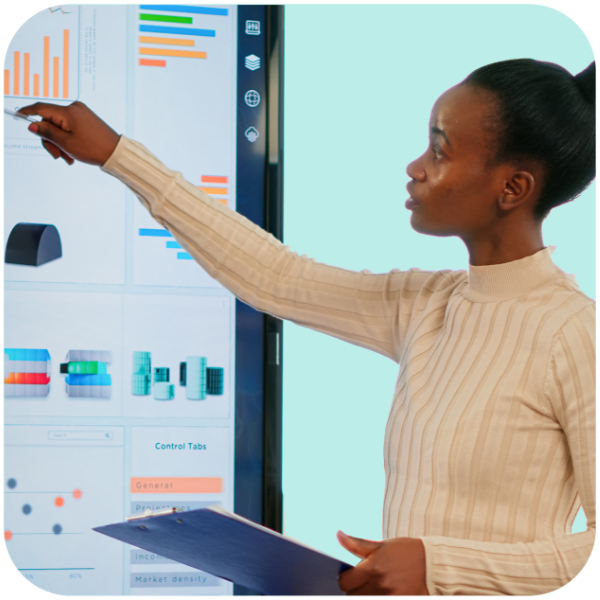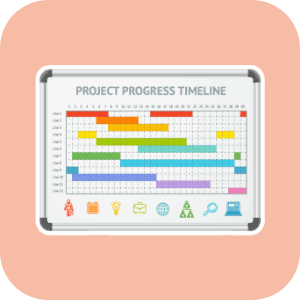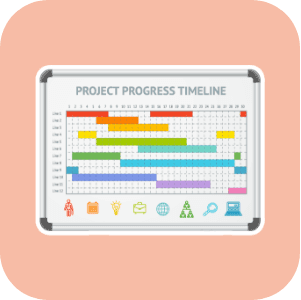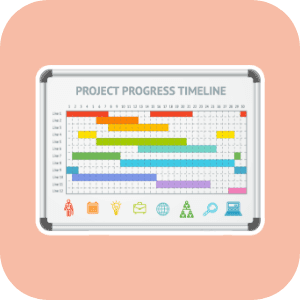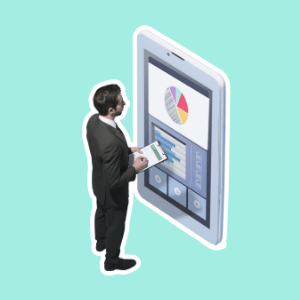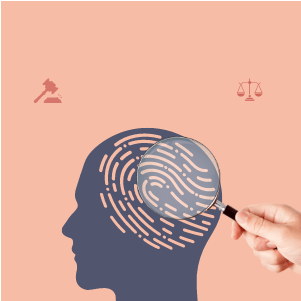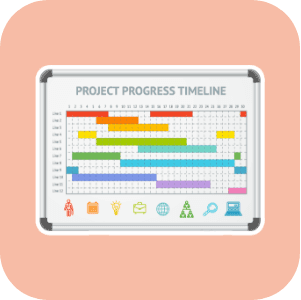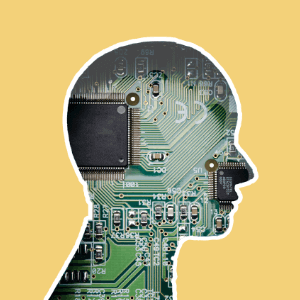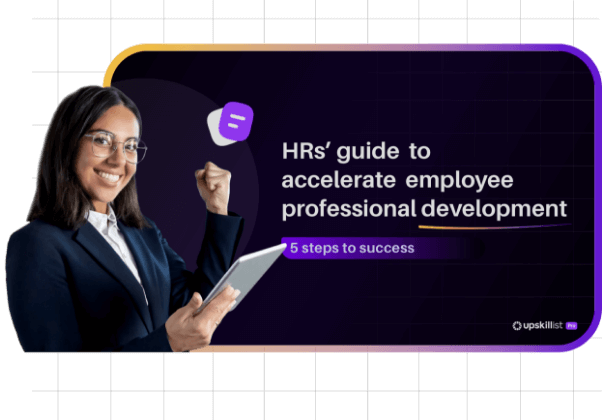Learn the basics of
Learn Organisational Psychology Online
Upskill your leaders and managers to effectively deal with individuals and teams at work with our organisational psychology course. Provide your team with a comprehensive understanding of the psychology behind how organisations and businesses run, how to motivate team members and how to manage the changing world of work.
Key Learning Objectives:
- Explore organisational psychology, its scope of practice and its central concepts
- Analyse the impact of a person’s psychology on the way they think and behave at work
- Manage teams in the workplace
- Resolve systematic issues to improve the functioning of an organisation
- Research trends that affect organisations globally

Ideal for:
Leaders and managers, anyone in human resources or learning and development.
Course outcome:
Provide teams with key insights and an understanding of the psychology behind organisations.
Course outline:
16
Weeks
04
Modules
32
Lessons
Course accreditation:
Upon completion of this leadership training course your employee will receive an accredited certificate assessed by global academic partner, the CPD Certification Service.
Globally recognised by:

Course details
MODULE 1
Diploma in Organisational Psychology
MODULE 1
Diploma in Organisational Psychology
1.Exploring the field
This lesson is about giving you practical insight into what Organisational Psychology is and it's place as an applied field of Psychology. The lesson also seeks to show you that even though you may not be a Psychologist, the insights and understandings that Organisational Psychologists have about the workplace are practical and accessible to all. Lastly, this lesson will paint a practical sketch of what an Organisational Psychologist actually does, and their typical role within companies.
2.A Changing World of Work
This lessons seeks to outline how the fields of Industrial (then becoming Organisational) psychology was born, and the kind of problems it first sought to solve. The lesson also tried to simplify and outline the key theoretical contributions of some of the fields founding fathers - and why their work was so important. Lastly, a modern view of the field is explored, and some of the more contemporary, exciting areas of work are covered to entice the student to get excited about what they could learn further.
3.The Psychology of an Employee
Lesson three really focuses on key psychological constructs and shows how they apply to the workplace context. Without being too theoretical, the lessons aim to demonstrate why the psychology of people really impacts how employees behave and feel when they are work.
4.Unhappy and unhealthy workplaces
This lesson helps the student understand the concept of pathology (or 'sickness') at work - both from a physical and a psychological perspective. It explores the way a workplace is constructed, the physical use of tools of trade and how the results of fatigue and stress all have a tangible, negative impact on employees. The lesson then looks at the emotional or psychological aspects of workplace pathology, exploring issues such as burnout and unhappiness. A current perspective is then offered on how forward-thinking organisations are using the insights and data findings of organisational psychology, to rethink how they treat their workforce and attain greater holistic health in the workplace.
5.Finding the Right Employee
Lesson four delves starts the journey of looking at some key HR management processes, and connecting the expertise and findings of organisational psychology to key aspects of that. Firstly, the student is taken through the foundational concept of an employee lifecycle, and introduced to the various HR processes at each stage. The deep-dive focus is then on Recruitment, both from a sourcing and a selection perspective. The concept of psychometric testing is introduced here and explored foundationally. The lesson will then also talk about the real lessons learnt from recruitment experts, and why organisations need to get this right.
6.Making Rocket Fuel and Managing Performance
Students are now introduced to the idea of Human Performance, and the never-ending need of the organisation to improve workforce output. Practical processes like performance management as part of the employee lifecycle are referenced here, but the fundamental crux of this lesson is on unpacking the idea of Discretionary effort, and how organisational psychologists help businesses get that 'extra mile' from employees. Concepts like employee engagement and retention are also part of this lesson, both viewed from the lense of improving performance.
7.Moving the Chess Pieces and Managing Talent
This lesson explores some of the challenges of managing people once they are in an organisation, and highlights how potential is a criteria for people to be moved across and upwards in a company. The lesson also outlines practical HR processes like succession and promotion, and draws on practical case-study examples to illustrate how challenging this is for management to get right.
8.Coaching for Performance
Coaching is very popular in the world of work at the moment, but is also not something that is well understood or critically evaluated. Lesson eight outlines what coaching is as a performance improvement tool for organisations, and helps the student differentiate between that and other approaches. It highlights the role of the manager as coach, and also focuses on unpacking some of the common challenges of coaching for performance in leaders.
MODULE 2
Intermediate in Organisational Psychology
MODULE 2
Intermediate in Organisational Psychology
1.Teaming Up
This lesson starts the journey into the social world and social psychological phenomena of organisations. The student will learn about teams, and how they are different from groups. A variety of theoretical models and ideas will be exploired, and then critically applied to the real world, so that the student grasps the complexity and dynamics that naturally occur when people work together in a team.
2.Collaboration and Conflict
Lesson two explores what happens when teams start to 'storm' and why conflict occurs. Then the upside of team functioning is looked at, with ideas around collaboration and how it differs from team work. Techniques and tips for improving collaboration are reviewed, and then the idea of healthy competition is unpacked via practical, illustrative case study.
3.Identity at Work: The Need to Belong
This lesson is about connecting the idea of identify with that of being an employee and belonging to group (either within organisation or organization as a whole). Examples might focus on places like the military organization or professional athletes whose work is that of team sport. Lesson will unpack how organisations make use of employee identification needs to drive loyalty and commitment. Gender will then looked at as a different kind of socially constructed identity, and how new, evolved thinking about gender identity is impacting people management processes in the workplace.
4.A Workplace of Difference
Lesson four builds on the idea of identity, and explores how employees all bring a very different sense of who they are to the workplace. This creates diversity within teams and organisations - something which organisational psychology has been exploring and researching for the last 50 years. The lesson focuses on clarifying how broad the field is, and what some of the complexities and dynamics are that play out in diverse workforces. Students are also then talked through the opportunities and challenges of managing a diverse team.
5.Steering the Ship
This lesson is begins the journey of understanding Leadership for the student. It introduces the concept of Leadership and explores some practical examples of what management is versus leadership. The focus then shifts to the competencies of leaders and helps the student understand how to identify a good leader. Lastly, the Leadership Development field is introduced, and students can engage with idea of 'teaching' or developing leadership skills.
6.An Effective Captain
Lesson six builds on lesson five, and explores various leadership style frameworks. Students will learn about common Leadership mistakes and how to avoid them. Practical examples and case studies are used to illustrate concepts, and make them real for the student. Lastly, leadership studies are widening to look at new ways of working, such as global teams who constantly work virtually, and what this demands from the leader going forward.
7.The dark side of leadership
This lesson shows the student the 'dark side' of people with power in organisations, and draws on the seminal work of Paul Babiak and Robert D. Hare. The student will learn about psycho-pathology in the workplace, in the form of narcissism, sociopaths and bullying.
8.Team Building Basics
The last lesson in this module is deliberately a skills-building lesson, which seeks to teach the student how to go about thinking and potentially designing a team building intervention. It educates the student about the various types of team building interventions, their intended outcomes and how to critically evaluate whether an intervention will have the desired effect.
MODULE 3
Advanced in Organisational Psychology
MODULE 3
Advanced in Organisational Psychology
1.Power and hierarchy
Lesson 1 explores the concepts of power in organisations and how it is used to ensure employee obedience. Students will learn about the various kinds of power and how organizational hierarchy contributes to power dynamics at work. The lesson will also help the student to understand why the role of manager carries power and what they can do to ensure that the power dynamics in the workplace are healthy.
2.Making the parts fit
Organisations are effectively individuals organised in a particular way to do specific tasks in a specific way. The design of the organisation, in terms of job, levels, teams and outputs is vital to how effectively the business functions. Many organisations have great people in them, but they are poorly organised, and so getting the best out of them is challenging. This lesson unpacks the fundamentals of Org Design, and teaches the student how to analyse the structure of an organisation, and identify the impact of people.
3.The way we do things around here
The focus of module 3 as a whole is on looking at the organisation as an ecosystem, meaning seeing the workplace as inter-connected to the environment, context and social landscape within which it operates, and being moulded by those. Lesson one of Module three is focused on organisational Culture, and explores all how culture is formed in an organisation, and what can be done to change it.
4.Shifting sands and managing change
Organisational change management is a vast topic on its own, and lesson three looks to lay a foundation of understanding of where this field came from and why it is important to organisations. The lesson will explain how change affects organisations and why it is important to manage change in a proactive way. Human resistance to change is also explored, and the psychology of why is outlined.
5.I am not a robot: the impact of technology
This lesson is focused on how workplaces and work forces have adapted to the rapidly accelerated pace of technology. The Digital Age has created new roles, shifted the way people work in traditional ones and forced employees to take on new skills at a faster rate than ever before. This lesson will unpack this and explore some of the psychological responses to technology, and the development like AI and automation that have resulted from this.
6.A shift in focus: work life balance, flexibility and new working practices
This lessons looks at traditional views of how people should work and be managed, and how they have evolved over time. It shows how the needs of employees around time. physical location and the view of home life has shifted, and organisations need to respond differently. This is major implications for productivity, morale and culture. The lesson will show the balancing act for companies between being progressive and supportive of employee needs, but also maintaining control and a grip on productivity.
7.Unpacking the Layers
Organisational Effectiveness is a specialisation in the applied field of org psych that looks at the overall state of the organisation, and seeks for ways to make it more effective - from a systems thinking angle. This lesson will explore this area and teach the student some practical ways of diagnosing organizational issues, and how to go about addressing them.
8.The Learning Organisation
Lesson 8 is the culmination of many ideas and concepts covered in Module 3. It outlines the seminal work of Peter Senge, and his ideas about Learning Organisations. The lesson provides both an academic , theoretical perspective on what it means for organisations to self-transform, but is also a practical application of ideas and principles that are key to the systemic view of organisational effectiveness.
MODULE 4
Proficient in Organisational Psychology
MODULE 4
Proficient in Organisational Psychology
1.The Employee Experience (EX) and Why it Matters
Improving the employee experience is something many organisations are focused on today, because they realise that improving the day to day lives of their own people always results in improved productivity, performance and customer satisfaction. This lesson unpacks what EX is and what it matters, and provides practical guidelines of how to build a compelling employee value proposition.
2.Ethics in Organisations: The Fine Line
Lesson two focuses on another fascinating area of organisations, which spans many disciplines such as law, sociology and psychology - that of ethics. This lesson looks at some famous case studies where there have been ethical failures, and explores why that is. The student will then unpack the psychological processes that an employee goes through in order to make an ethical decision, and will walk away with some practical guidelines and tips about supporting ethics in the workplace.
3.HR of the Future: New Jobs, New Skills
The HR function effectively owns the processes and practices that are intended to manage the human asset in any workforce. Given that people are often the most valuable (and sometimes most expensive) asset in any organisation's book, the HR function is of vital importance. And yet, this is often seen as a 'support' unit and their work undervalued or under-invested. This lesson looks at the key skills of HR today, and then predicts the kind of roles and competencies HR will need for the future.
4.Pop Psychology and its Place in Business
Lesson 4 dives into the area of popular psychology, and specifically, popular theories of personality and leadership in the workplace. The intention of the lesson is to explain to the student what the difference is between formal social science and popular theories. Practical examples will illustrate the ideas for the student, and the intention is to equip the student with the ability to differentiate and critically evaluate the many pop psych theories out there - especially those that relate to self-help and management.
5.We Never Saw it Coming
The impact of the Corona virus on the world of work has probably been the most dramatic since the invention of computers. So what have we learnt about employees and employers through this pandemic? Lesson 5 discusses issues such as virtual working, employee loneliness, work from home fatigue and trauma all using the COVID impact as a real-life case study. The intention of the lesson is to show how employment practices and skill needs of various organisations can quickly be changed when a once-in-a-lifetime event unexpectedly occurs.
6.Innovation in Organisations
Innovation is a very hot topic in all industries as organisations seek to gain a competitive edge at every turn. But what is innovation and how do you spot an employee who might be good at it? Lesson seven explore the challenges of innovating in organisations, and why many companies just aren't geared towards to new ideas.
7.Positive Psychology at Work
Positive psychology is a particular way of seeing the individual and the social world. This lesson explores its main tenets and looks at how these can be applied in organisations. Many organisational psychologists are using a positive psychology approach to their work, and the intention of this lesson is to provide insight for the student as to how this is possible, and why it might be useful.
8.Hot Topics and Trends in the Workplace Today
Lesson 8 is the final lesson of module 4, and it is deliberately intended to pull together many of the ideas, concepts and interesting debates already covered it the course. The lesson is a review of the current hot topics and trends in both the organisational psychology field, and in the workplaces of today. It will look at debates and concerns that workplaces and organisational psychologists are trying to resolve currently, as well as look to the future and predict what challenges lie ahead for employees, companies and leadership.

